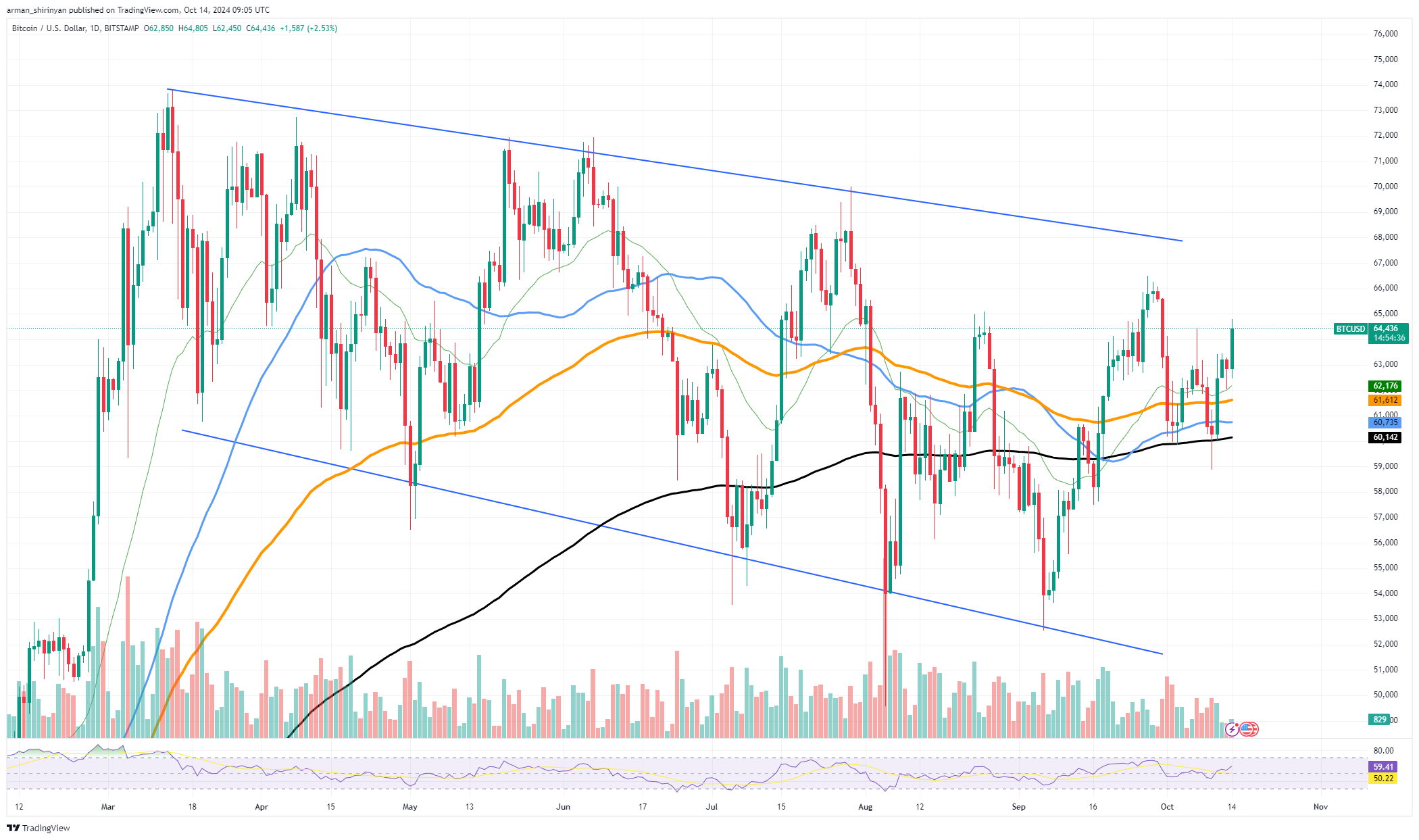In 2024, the Bitcoin US controversy has escalated to unprecedented heights. As the Federal Reserve considers recommendations that could significantly impact the future of digital currencies, both supporters and detractors of Bitcoin are voicing strong opinions about how these changes might affect the economy and the cryptocurrency market.
This article examines the most important components of the dispute surrounding Bitcoin in the United States, with a particular emphasis on the proposal made by the Federal Reserve to regulate or maybe embrace digital currency systems. The ramifications for Bitcoin’s involvement in the financial landscape are enormous, and the outcome of these discussions could impact domestic economic policy and international markets.
Fed’s Digital Dollar
Discussions ensued after the Federal Reserve proposed a digital dollar or central bank digital currency (CBDC). An early 2024 Fed discussion document outlined its digital currency strategy. The idea attempts to increase payment efficiency, but Bitcoin enthusiasts say it threatens decentralized digital money. Many consider the US Federal Reserve’s interest in digital currency as an attempt to control the financial system, which Bitcoin proponents strongly oppose. They say the move might harm cryptocurrency’s decentralization, privacy, and financial independence. The Bitcoin US dispute grows as traditional banking and decentralized digital currencies meet in the changing financial landscape.
Federal Reserve vs. Bitcoin
Bitcoin has emerged as a significant financial player, particularly in the US, driven by growing institutional investment and widespread adoption. Unlike the Federal Reserve’s goal of centralizing digital currencies, Bitcoin operates on a decentralized financial model. With its fixed supply and transparent, irreversible blockchain, Bitcoin is a hedge against inflation and the depreciation of fiat currencies. However, the Federal Reserve’s CBDC regulation or introduction threatens Bitcoin’s worldwide reserve asset status. Many believe that centralizing digital currencies will impede innovation and make Bitcoin a secondary currency, preventing it from becoming a dollar alternative.
Bitcoin Advocacy and Resistance
Bitcoin supporters are fighting back against the Federal Reserve’s CBDC proposal, highlighting the advantages of a decentralized currency system. This is happening as the Fed continues to investigate the concept. Bitcoin can function independently of centralized authority, such as governments and central banks. That supporters of the cryptocurrency claim is the essence of the cryptocurrency itself. According to their argument, a digital currency backed by the Federal Reserve would weaken this fundamental premise. Increasing surveillance and enabling potential control over individuals’ financial transactions.

The growing pushback against these plans is exacerbating the issue surrounding Bitcoin in the United States as digital asset proponents mobilize to safeguard the liberties associated with decentralized currencies. The future of Bitcoin is contingent on whether or not it can withstand the increasing challenges from regulatory authorities and continue to provide an alternative to conventional financial management methods.
Fed Proposals and Bitcoin Future
As the US Federal Reserve develops digital currency proposals, the Bitcoin US controversy continues to grow. While the Fed has yet to implement a CBDC, its research into digital currency systems could significantly impact the Bitcoin market. These plans intensify debates, with Bitcoin advocates pushing for a decentralized future and CBDC supporters calling for greater regulation and control. How regulators and the Federal Reserve address these challenges will shape Bitcoin’s role as a global financial asset. The resolution of this controversy will ultimately determine Bitcoin’s influence on the US economy.
Also Read: Catzilla Meme Coin 200% Presale Surge in 2024
In Summary
The Bitcoin US controversy centered on the Federal Reserve’s proposal for a digital currency. Underscores the ongoing clash between centralized and decentralized financial systems. The Federal Reserve explores the feasibility of a central bank digital currency (CBDC). Bitcoin supporters express concerns about the potential erosion of privacy, Autonomy, and decentralization in the financial sector.
Bitcoin is gaining traction as a hedge against inflation and economic uncertainty. The controversy highlights its pivotal role in shaping the future of finance. 2024 the battle between digital currencies and traditional financial systems will escalate. Carrying profound implications for the US economy and the global financial landscape.
[sp_easyaccordion id=”143″]

